Adaptation to climate change in protected areas
The Climate is changing, bringing changes that affect the life of every being on earth. Nature was never so threatened – nor so needed – as before.
The air we breathe, the water we drink, the food we crop, they all depend on the quality of our ecosystems. Hence, more than ever, it is necessary to develop criteria to guide actions for climate change adaption. This will require strengthening mechanisms for collaboration between scientists and managers of protected areas.
At EUROPARC Conference 2017, we will have a dedicated workshop to discuss how can Parks incorporate measures for climate change adaption and mitigation.
Adaptation to climate change in protected areas
Earlier this year, EUROPARC Spain launched a practical manual for Protected Area technicians and decision makers to better Incorporate Climate Change Mitigation Actions in management Plans.
Management plans are the main and most important tool for natural areas, as they set biodiversity and conservation targets along with indicators and evaluation criteria. However, while other drivers of climate change (like changes in land use, invasive species or
pollution) are well identified and targeted in management plans, the attention shown to climate change is very scant, often non-existent.
EUROPARC Spain, with the support of several experts on climate, protected area technicians and researchers, defined criteria and compiled a roadmap for considering climate change in all phases of the planning process.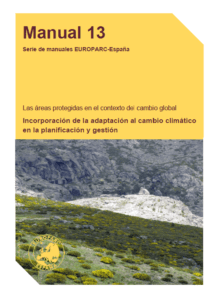
The manual is available in Spanish (with executive-summary in English)
From theory to practice: how to implement?
Adaptation to climate change in protected areas should be based on an ecosystem approach, aiming for the protection of the natural resources and ecosystem services provided to society.
Facing this complex challenge requires the establishment of alliances at administration level with the different sectors of society. Within workshop 10- Changing Climate, Changing Parks, on EUROPARC Conference, EUROPARC Spain will introduce the findings of the book and share good practice – both in the development of planning tools and in the design of conservation projects.
Case study 1
Incorporating climate change adaptation into planning and management. Experiences from Spain.
Jose Atauri, EUROPARC Spain (ES)
How to include climate change measures in our job? Tools to incorporate climate change adaptation measures in the cycle of planning and management of protected areas will be presented.
Case study 2
Planning Protected Areas – Adaption to Climate Change in Catalonia
Leonardo Bejarano, Generalitat de Catalunya (ES)
Leonardo will share the proceedings for incorporating climate change adaptation criteria in the planning and management of a protected areas network system of a regional government. Pilot cases, good practice and support tools in the field of adaptation to climate change in protected areas in Catalonia will also be shared.
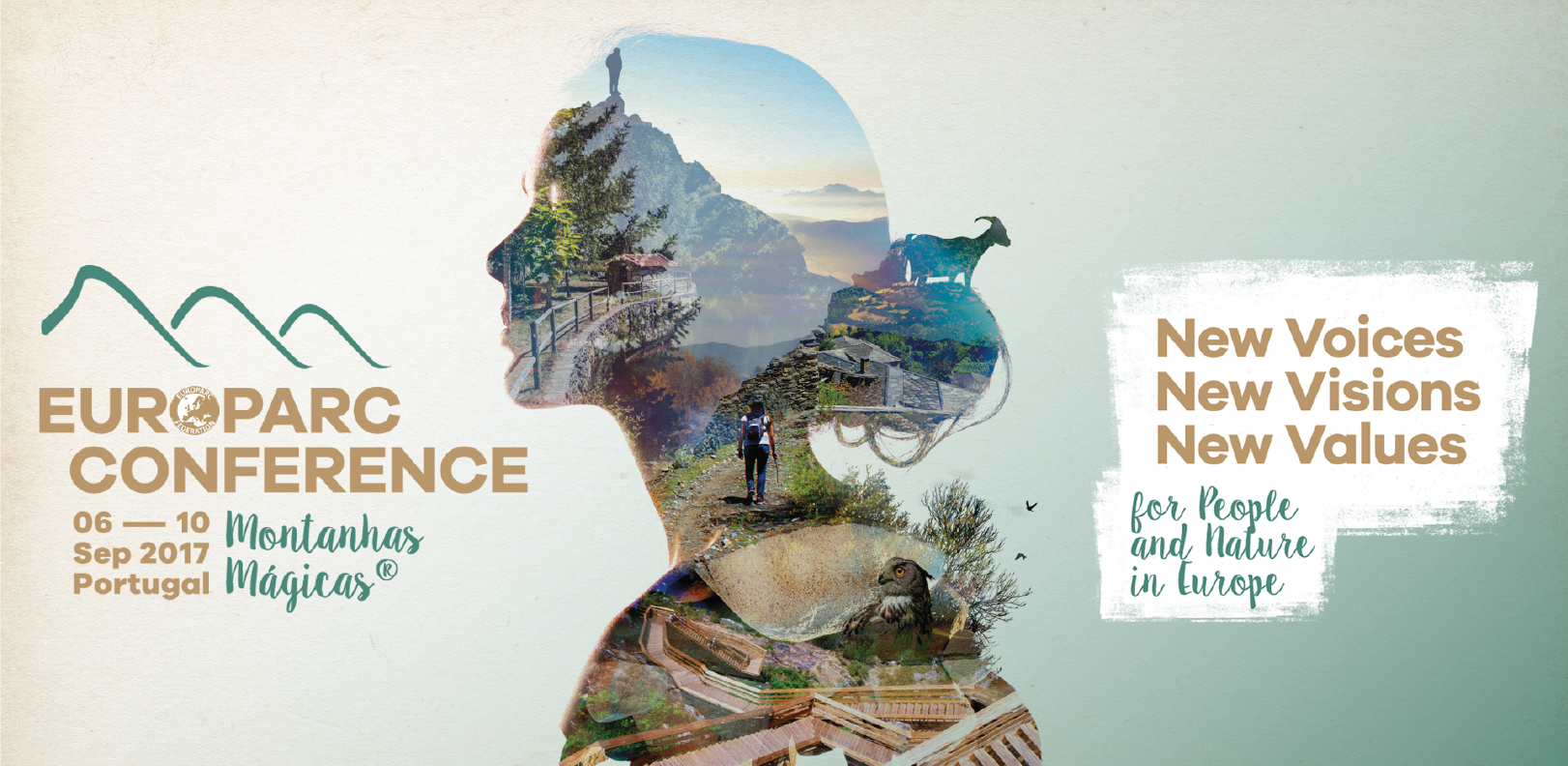
http://europarc2017.montanhasmagicas.pt/en/
Are you joining us in the biggest event of Protected Area professionals?
Learn all about the Programme and join us in Portugal, between the 6-10th September!
World Rangers Day 2017
The 31st July is the celebration of the World Rangers Day, an initiative promoted yearly by the International Ranger Federation and the Thin Green Line Foundation.
We Stand with the Rangers!
EUROPARC President Ignace Schops and Executive Director Carol Ritchie show the support of the Federation for the work of our Nature Protectors.
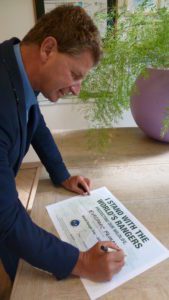
Rangers’ activities differ from country to country, but they mainly focus on:
- Monitoring species
- Surveilling protected areas
- connecting #people and landscape through guided tours and environmental education activities
Unfortunately, every year hundreds of Rangers lose their lives fighting wildfires or in the hand of wildlife poachers, hunters, illegal miners or timber smugglers. In Europe, the figures are not as alarming as in India, Brazil or African countries. In 2016, unfortunately, 3 Rangers have died in Spain and one in Romania, whilst the world account reaches the 119 deaths. We share our condolences with the families of these brave heroes, who died fighting for our natural heritage.
Check here the Honour Roll of 2016, announced by the International Ranger Federation and download your own Poster!
Print off the poster, fill it in, and show the World how you also support the Rangers by sharing on Facebook with #worldrangerday #internationalrangerfederation and #thingreenlinefoundation.
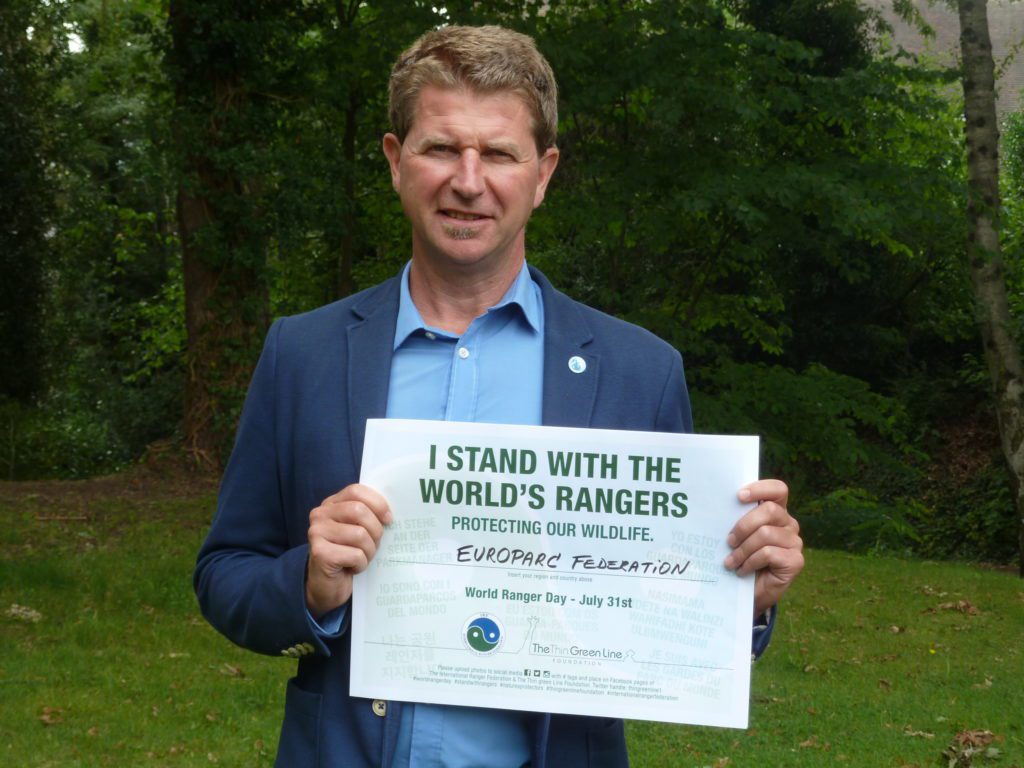
EUROPARC President Ignace Schops – World Ranger Day 2017
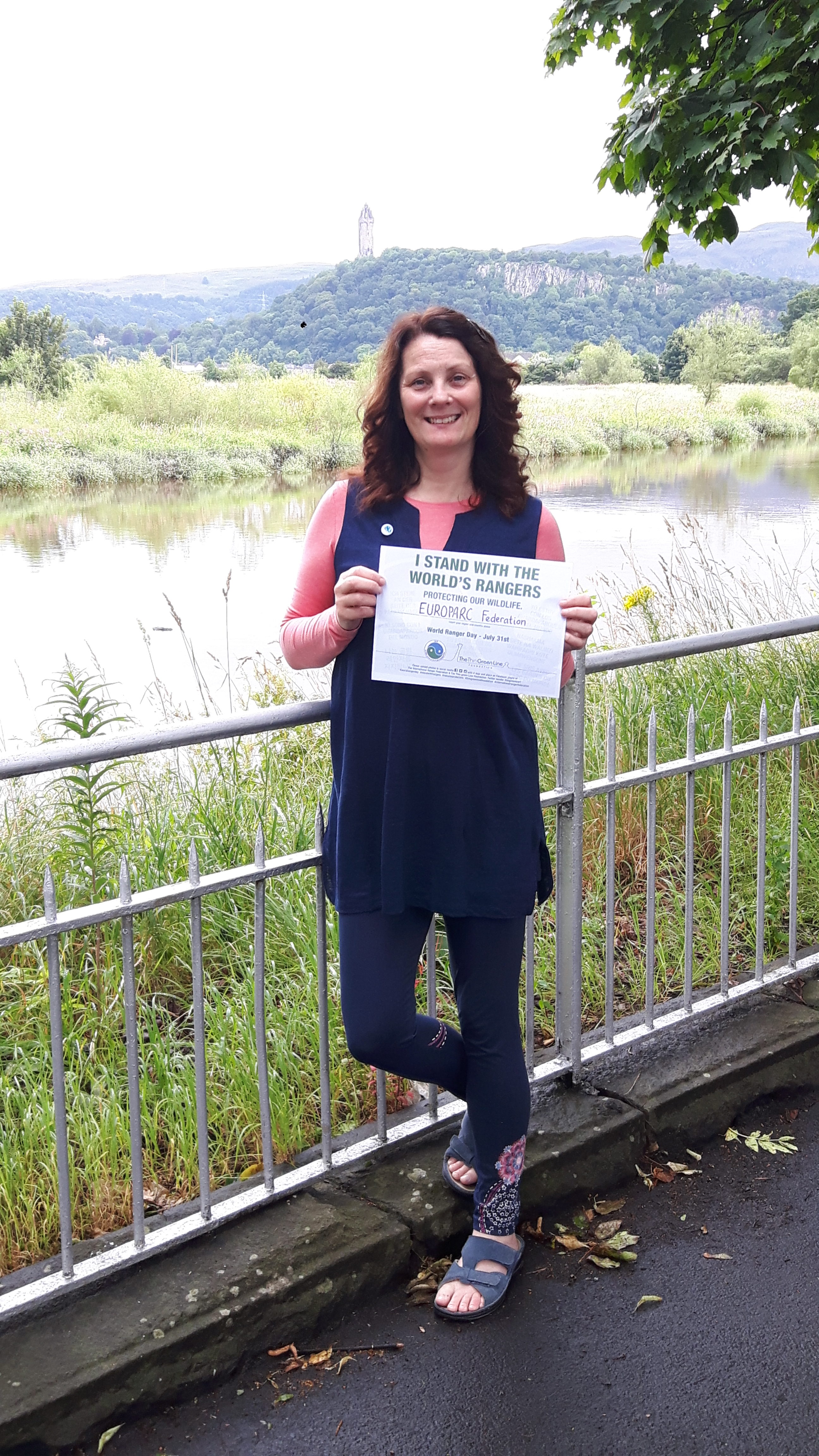
Executive Director Carol Ritchie – World Ranger Day 2017
International Ranger Federation at EUROPARC Conference 2017
The IRF will be one of our special guests at EUROPARC General Assembly 2017. Have you booked your place for the biggest event of European Protected Areas?
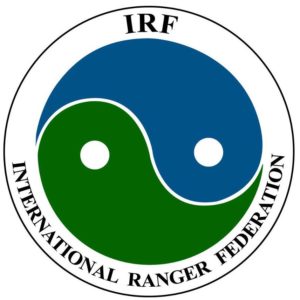
International Junior Ranger Camp 2017 – summary.
Junior Rangers at Junior Ranger Camp 2017. Photo by Swiss Rangers
Last week, between the 17th and 22nd of July, the 16th edition of the International Junior Ranger Camp took place in Habkern, Switzerland. In this occasion, the camp was organised by the Swiss Rangers under the theme “Team Nature”, and 45 participants representing 14 parks from 10 countries attended to it. The Swiss team offered to the participants a very fun and diverse programme.
A wide range of activities
Among the activities planned, the Junior Rangers had the opportunity to learn some techniques for the maintenance of the Alpine meadows maintenance and contribute to it with some practical work. Furthermore, the Mentors that accompanied the Junior Rangers also shared some expertise and knowledge on some amazing skills such as building a rope with grass, light a fire with sticks and stones or tie a Monkey’s fist-knot.
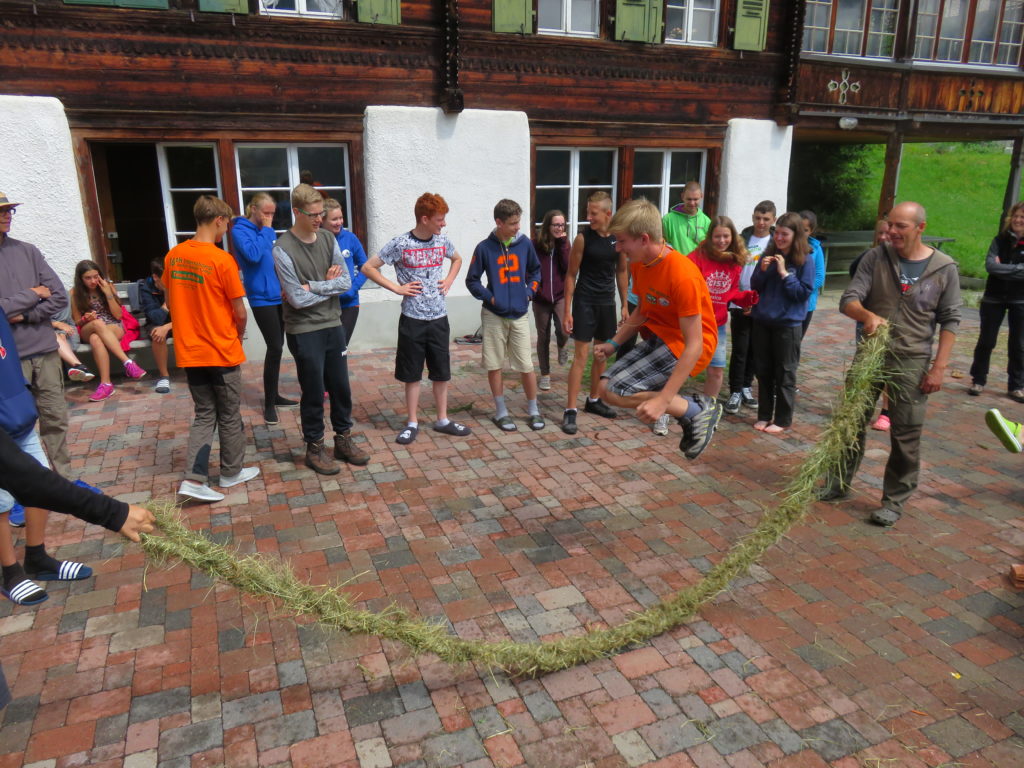
Junior Rangers jumping over a grass-made rope. Photo by Swiss Rangers.
However, there was also some time for travelling, at least with the mind, to other parts of Europe. For this, the Junior Rangers did a short presentation of their parks to the rest of the participants and shared some of their local delicacies with the rest of the team.
But the activities did not ended there, as exploring the surrounding areas that conform the Swiss landscape and visiting a cheese factory.
Follow us on facebook for updates on the Junior Ranger Programme activities and future Junior Ranger Camps, and have a look on the pictures of the International Junior Ranger Camp 2017. And remember, we are all “Team Nature”!
EUROPARC Annual Report 2016 is out
Parc Jura vaudois, Switzerland, photo by Serge Goy
The EUROPARC Federation is proud to present you the Annual Report of 2016. This year we have a new look and structure to provide you a clearer view on how we are implementing the EUROPARC Strategy 2015-2021.
Download the Annual Report in English, German or French.
2016 was again an exciting journey, where we experienced the beauty, the power and the resilience of the full EUROPARC constituency.
says Ignace Schops, EUROPARC President, adding the important merging process with FEDENATUR, with which “we gained extra expertise, strengthened our European leading position and widened our family.”
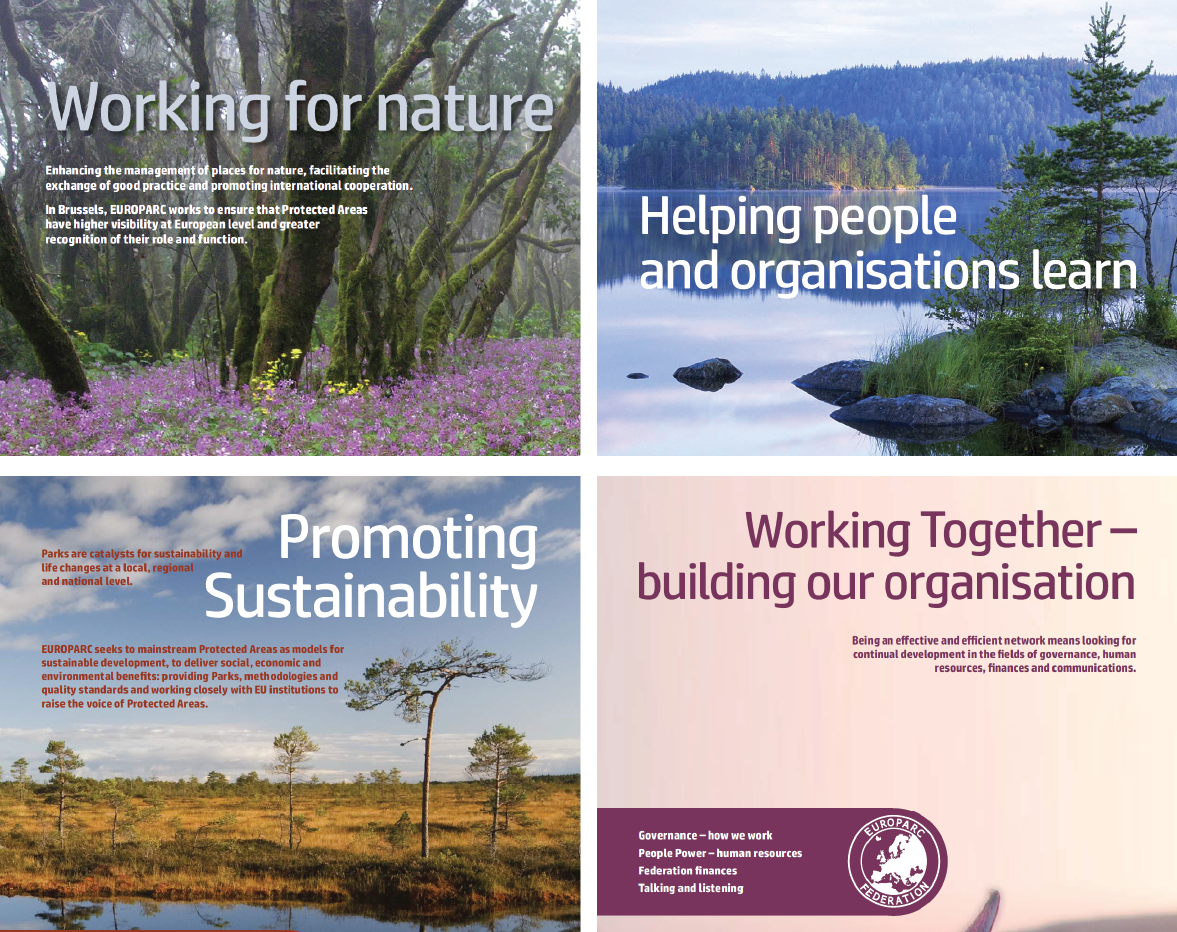
EUROPARC Annual report follows now the 4 Themes of EUROPARC Strategy 2015-2021 for an easier understanding on how we are implementing it.
Travel across our four priority areas and discover the activities and projects we’ve undertaken in 2016. In particular, the work we do to lobby on behalf of our member’s interest is highlighted in blue throughout the report.
The Annual Report will also bring updates provided by EUROPARC Sections, in chapter 5: our European Network, showing the work done at a national and regional level across Europe.

Download the Annual Report in English, German or French.
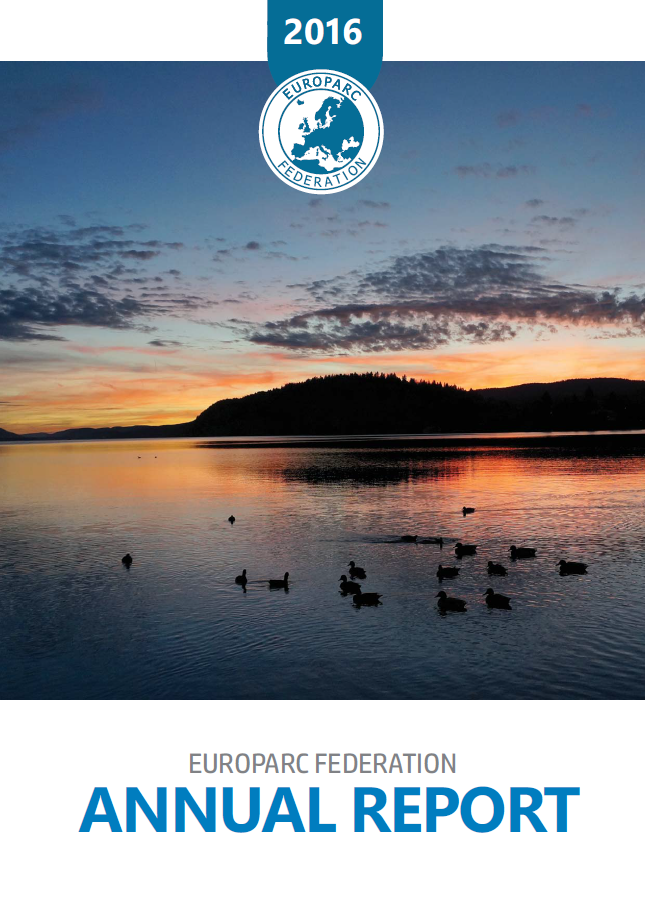
EUROPARC is the voice of Protected Areas in Europe. We unite national, regional and periurban parks, nature and biosphere reserves, marine and landscape protected areas, together with a large number of Natura 2000 sites in 37 countries. Discover more about us.